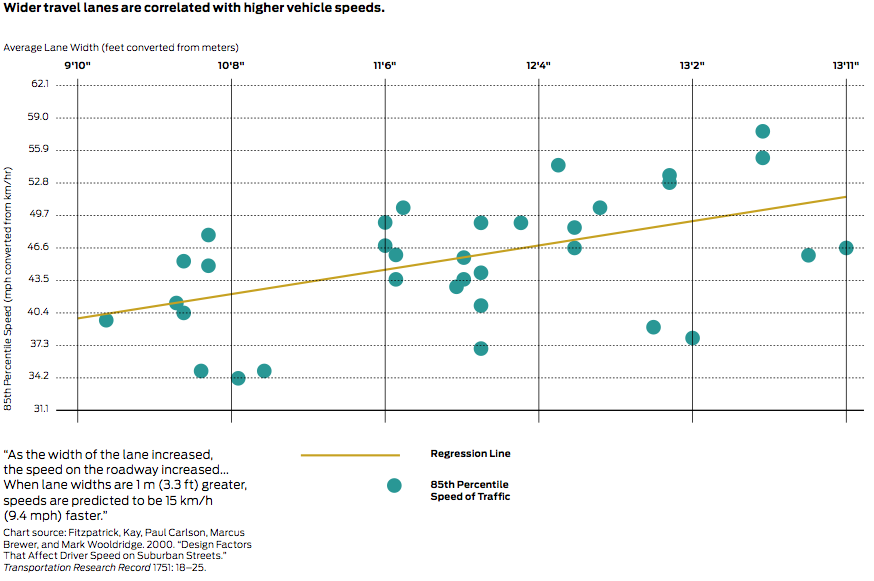Streets That Encourage Speeding Are Streets That Encourage Drag Racing

An unidentified 17-year-old kid without a drivers license killed Nicholas Richling, 26, because he wanted to drive as fast as possible — faster than his drag-racing opponent — on Alameda Avenue on Sunday evening.
Afterward, Denver PD Sgt. Mike Farr, a crash investigator, pointed to a street design that encourages speeding. “Alameda is a straight shot, a fairly wide boulevard,” Farr told the Denver Post. “These spots exist all over the city.”
Yes, they do. In 2014 David Felan killed 26-year-old Rachel Neiman and injured seven people on Federal Boulevard, a notorious street for drag racing. Alameda and Federal (both urban streets that double as state highways) have incredibly wide lanes — often 12 feet wide, sometimes roomier. Federal has lanes as wide as 16 feet, an alarming width for an urban street.

“[Street racing] is happening all over the city,” City Councilman Paul Lopez said Wednesday at a committee meeting on public safety. “You’re in the public realm. You have the responsibility of the safety of others.”
Lopez is right. The person who ended Richling’s life made a choice to speed, and Denver PD officers weren’t around to stop him. But the Hancock administration and Colorado DOT Director Shailen Bhatt also have a responsibility: to design streets that discourage that choice, rather than encourage it.
The National Association of City Transportation Officials, of which Denver is a member, recommends lanes no more than 10 feet wide. That’s because the wider the lane, the faster the driving speeds. The faster the driving speeds, the higher the likelihood of death upon impact. Yet even new street designs by Denver Public Works include lanes of at least 11 feet wide, as on Brighton Boulevard and Broadway.
Both Mayor Michael Hancock and Colorado DOT Director Shailen Bhatt have verbally committed to ending traffic deaths. Reaching that goal will take a proactive, zero-tolerance approach to street racing from Denver PD and city prosecutors, but it will also take engineering for safety instead of speed. Richling’s death is just the latest reminder.


